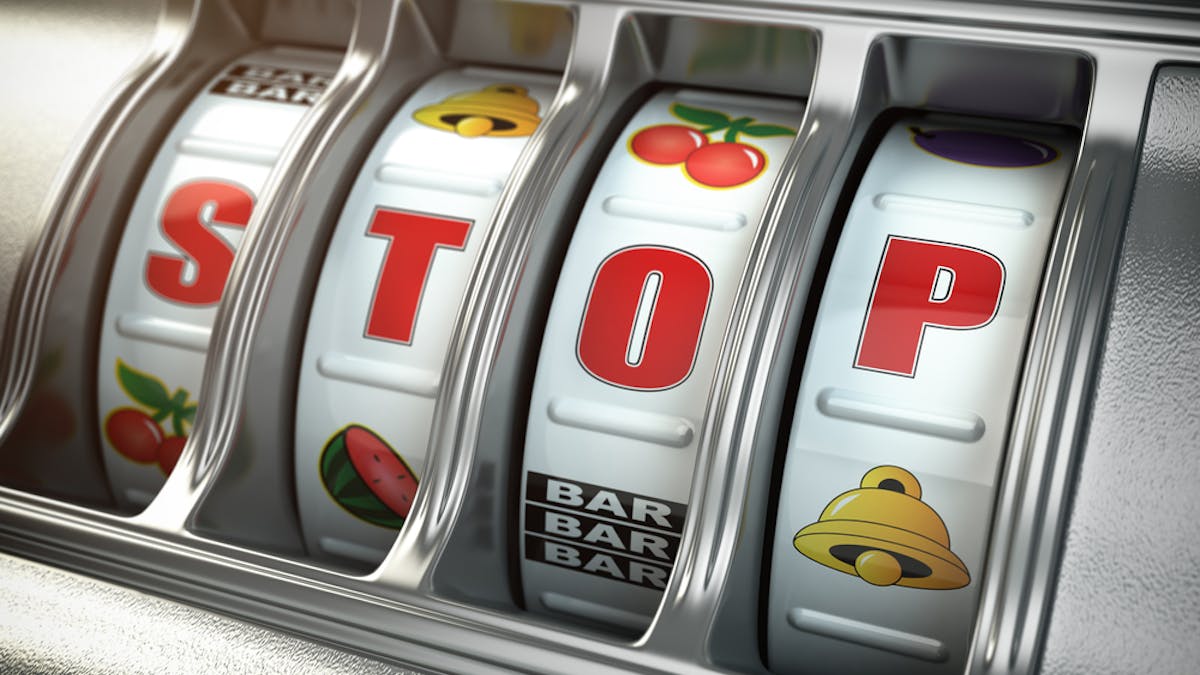Gambling And Depression Statistics
- Gambling And Depression Statistics Since
- Gambling And Depression Statistics In America
- Gambling And Depression Statistics Definition
- Gambling And Depression Statistics Articles
Citizen Link Tuesday, June 15, 2010 – 4:30pm Written by Chad Hills For millions of Americans, gambling addiction leads to hopeless pain and misery; for some it leads to death. The National Gambling Impact Study Commission report estimates that nearly 15 million men, women and children have a problem or pathological addiction to gambling. Gambling-related.
- World Health Organization (WHO) List Video Game Addiction As An Illness For the first time, the World Health Organization will list 'gaming disorder' as a behavioral addiction, a controversial.
- Gambling disorder refers to the uncontrollable urge to gamble, despite serious personal consequences. Problem gambling can impact a person's interpersonal relationships, financial situation, and physical and mental health. Yet it has only recently been recognized as an addiction. Problem gambling was first classified as a psychiatric disorder.
We’d all like to be rich. Playing the lottery or making an occasional trip to Las Vegas or some nearby casino allows us to indulge in the dream of being wealthy someday. Bright lights lure us in and sporadic gaming payouts tempt us into believing we might just hit it big. But, while it’s generally fine for most people to wager on games of chance once in a while, for those at risk of a gambling addiction, giving into the temptation may trigger a slide into a gambling problem.
Why do People Gamble?
People don’t usually gamble for one single reason, although the underlying motivation for gambling is typically profit based. The thought of seeing coins flowing out of a slot machine like an endless silver waterfall or the Hollywood movie scene of a casino piling stacks of money in front of a winner can move almost anyone to take a chance on gambling.
Aside from profit, however, people often gamble for:
- Excitement – think about the thrill of the flashing lights and bells that go off when someone wins on a slot machine
- Pleasure and the euphoria of winning every so often
- Escape from troubles
- Social valuation – even if they lose a lot of money, a person may feel that the act of gambling shows they are successful enough to be able to afford to lose it (even if that isn’t really true)
- Pride – if someone wins a few hands of poker, they feel smart and invincible
- The chance you could change your life with very little effort
- Social acceptance – this applies to many games, ranging from playing bingo at church to joining in football pools with friends on Game Day
Pathological Gambling Risk Factors

Around 1 to 3 percent of people in the United States are impacted by a gambling problem. As with other addictions, gambling disorders tend to run in families. Those who suffer from this impulse-control disorder also tend to have issues with anxiety and depression and/or problems with substance abuse or alcoholism. The disorder symptoms may come and go, but without treatment, the problem will return.
A gambling addiction usually starts between the ages of 20 and 40 in females and in early adolescence in males, however it can happen at any stage of life. While it can affect anyone, the risk of compulsive gambling increases in those who are highly competitive, are workaholics, have a friend or family member with a gambling compulsion, or in those who have bipolar disorder, obsessive-compulsive disorder (OCD), or attention-deficit/hyperactive disorder (ADHD).
Symptoms of a Gambling Addiction

In the same way as alcohol or drugs, gambling stimulates the brain’s reward center. Just like with any addiction, a person with a gambling disorder can’t resist gambling even if they don’t have the money to lose. They hide their need to gamble from family and friends and vehemently deny they have a problem. They feel compelled to keep playing in order to recover their losses. They also become tense and anxious when they can’t satisfy their urge to gamble and will feel relief when they finally get their “fix.”
The American Psychiatric Association (APA) defines a gambling disorder as involving “repeated problematic gambling behavior that causes significant problems or distress. It is also called gambling addiction or compulsive gambling.”
If family, friends, or coworkers have talked to you about your gambling, you may have a gambling problem. To help clarify if you may be a compulsive gambler, this list from the APA can help you decide:
A diagnosis of gambling disorder requires at least four of the following during the past year (Note: this questionnaire is not intended to replace professional diagnosis):
- Need to gamble with increasing amount of money to achieve the desired excitement
- Restless or irritable when trying to cut down or stop gambling
- Repeated unsuccessful efforts to control, cut back on or stop gambling
- Frequent thoughts about gambling (such as reliving past gambling experiences, planning the next gambling venture, thinking of ways to get money to gamble)
- Often gambling when feeling distressed
- After losing money gambling, often returning to get even (referred to as “chasing” one’s losses)
- Lying to conceal gambling activity
- Jeopardizing or losing a significant relationship, job or educational/career opportunity because of gambling
- Relying on others to help with money problems caused by gambling

Add up your score:
- 4 to 5: Shows a mild gambling problem
- 6 to 7: Points to a moderate gambling problem
- 8 to 9: Indicates a severe gambling problem
Self-Help for Gambling Addiction
The biggest step toward recovery is acknowledging that you have a gambling problem. While it is difficult to quit gambling, many people have done so and were able to rebuild their lives. The path is easier when you have support.
Some self-help tips are:
- Find a support group, like Gamblers Anonymous or get support from a mental health professional
- Seek treatment for any underlying mood disorders, such as anxiety or depression, which can trigger a gambling problem
- Reach out to family and friends for help
- Practice relaxation techniques, such as yoga or mindfulness
- Distract yourself by starting an exercise program or taking up a sport.
- Spend time with non-gambling friends or take up a hobby. Be certain not to isolate yourself
- Visualize what will happen if you gamble. How will you feel if you disappoint everyone again or if you lose all your money again?
- If you are the family member or friend of a gambler, don’t pay off their debts. You run the very real risk of enabling them to gamble again.
Help for Gambling Addiction
If you or a loved one need help to stop compulsive gambling, the mental health professionals at The Center for Treatment of Anxiety and Mood Disorders in Delray Beach, Florida can help. For more information, contact us or call us today at 561-496-1094.
Most people, whether they have a problem with gambling or not, can relate to the idea that people get excited when they win, and feel disappointed when they lose.
Beyond the initial feelings of sadness from losing, when someone has a gambling problem they may feel depressed, as well as perhaps experiencing feelings of shame and guilt.
Signs of depression may include:
- Increased irritability and frustration
- Loss of interest in activities and friends
- Feeling tired and worthless
- Struggling to sleep or finding it difficult to get out of bed
- Loss of appetite
- Negative or hopeless thoughts
Most people experience some of these signs at different times in their lives but if you notice they are happening more often you may be feeling depressed.
Gambling And Depression Statistics Since
Remember there are services available to help you with these feelings, you can speak to one of our counsellors who can help you find the right one, and it’s completely confidential, free and available 24/7.
How common is depression and gambling?
A recent study has found that people with a gambling problem were twice as likely to be depressed and 18 times more likely to experience severe psychological distress than people without a gambling problem.

Gambling And Depression Statistics In America
Further to this, the connection between mood and gambling is not always one-way and being depressed may push someone towards gambling in the first place.
For example, feeling depressed, down or alone can place people at risk of developing or increasing their gambling problem:
- People may use gambling as a break or escape from negative feelings or situations
- Gambling may provide a 'pick me up' or a sense of feeling connected to other people.
Dealing with gambling and depression
It is really important to look at your gambling and mood when addressing the problem. This will help you decide what kind of supports and strategies you might want to consider using.
For example, if you gamble because you are lonely, it will be important to look at both the gambling and the loneliness when taking steps to get your control back.
A simple step
Increasing your activity level can be one simple way to help with your depression. It can boost your mood, give you a different focus, increase your sense of control, makes you feel less tired and can help you think more clearly.
Just as you would train before running a marathon for the first time, starting with small steps can be the key. For example:
- Make your bed – it gets you moving and a sense of achievement for completing an activity.
- Go for a walk, gradually increasing how far you go each day.
- Cook a recipe you haven’t tried before.
- Sign up for a regular activity, this could include:
Gambling And Depression Statistics Definition
o Dancing
o Cooking
o Fitness/Gym
o Men's shed
o Gardening
o Art Class
o Painting
o Knitting
o Woodwork
o Get a Pet
o Singing
Gambling And Depression Statistics Articles
Make sure it’s something you enjoy doing, or gives you a sense of satisfaction, this way you will look forward to it and be motivated to participate!
Next steps
If you think depression is an issue for you, it is important to get help:
- Speak to one of our counsellors. They will discuss some strategies with you and can also refer you to local services.
- Talk to someone who you trust and know will listen to your concerns.
- Visit your G.P. or a mental health professional. They can conduct an assessment and provide treatment and referral if appropriate.
- Seek support from others in our peer support forums